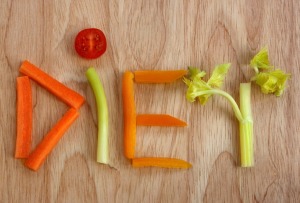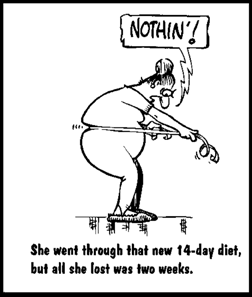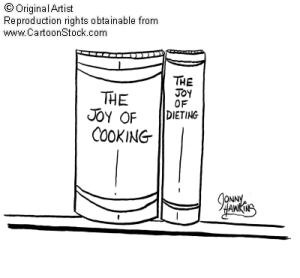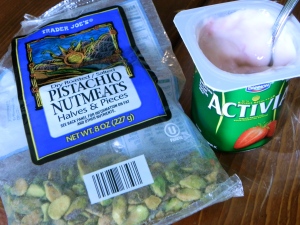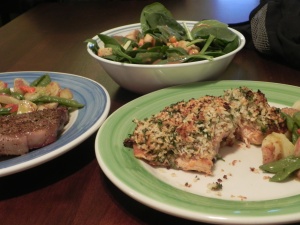You are currently browsing the tag archive for the ‘Diet’ tag.
The picture album in my mind is full of food. It leaves room for little else. Breakfast, lunch, and dinner—dissected and cataloged. It would seem all I ever do is eat. Or not eat.
My 15-year-old Birthday. I’m told there was a sleepover. A group of friends from school gossiping about boys and teachers. I see a picture my mom took; a friend is dressed up in a mermaid costume and everyone is laughing. I am noticeably absent. Perhaps I was staring down the sugar-free, fat free ice cream cake my mom had special-ordered from TCBY. Because that’s all I can remember from that day.
A family vacation to Disney World. I’m trying hard, I swear I am. My sister and I run, carefree through the park, laughing at inside jokes. We watch a parade as it rolls down the street. Fireworks light up the night sky, casting shadows across the ground. This is what I tell people when they ask me about my trip. But if I’m telling the truth, all I remember is the fight I had with my dad over whether I would eat another bite of chicken.
The first day of college, standing in front of the salad bar, I have a panic attack when I realize they don’t have fat free dressing. I don’t remember what my dorm mates looked like or the classes I took. But I remember that fucking dressing.
My wedding day. Everyone tells me to stop a moment and take it all in—you only get married once they say. I look through my wedding album, am amnesiac patient sifting through the ruins of her life. The hair, the nose, the awkward rolls of fat where I wish there were none. That girl in the pictures is clearly me. I flip through and see a picture of a towering cake, laced with delicate, pink fondant flowers. 400 calories a slice easily. And now I remember. While everyone else was dancing and drinking and being merry, I was worried about how much cake my husband had shoved in my mouth.
This is what my memory has become. Moments defined by my relationship to food. A life defined not by what I achieved, where I’ve been, or whom I loved. Only by what I ate.
If I could I’d erase all these images. Hope to make room for something else. But there in their too deep, and I am tired of fighting.
Can anyone relate? Please share your stories in the comments.
Recently, the U.S. Preventative Services Task Force recommended that doctors refer all patients with a body mass index of 30 or more to a program designed to promote weight loss. A successful program, according to the panel, combines counseling sessions with concrete weight-loss goals, nutrition advice, and education on setting limits and recognizing barriers to change. The recommendation was met with mixed reviews from doctors and politicians involved in the healthcare debate. Some cited it as a “long-overdue” prod to physicians while others acknowledged the additional responsibility it would place on doctors who are already facing time and resource constraints.
What the debate skims over, however, and what may be the most important point is not a single study demonstrates the long-term benefits of an intensive weight loss program for health. This oversight is at the crux of the war on obesity and America’s obsession with weight loss.
One of the central misconceptions fueling the task force’s recommendation is that body weight alone is indicative of health. Many studies have indicated that weight, when viewed in conjunction with other lifestyle habits like exercise, is not related to disease or early death except in the morbidly obese. Other studies point out that equal numbers of thin and fat people exhibit unhealthy eating habits and whether or not those habits become externally apparent is largely determined by genetics. To assume all fat people are unhealthy and all thin people are healthy is prejudicial and does a disservice to both groups.
Another misconception is that everyone who is fat must suffer from some form of disordered eating. In reality many people with a BMI above 30 are healthy adults who exhibit moderate eating and exercise habits. Likewise, many people at a “normal” BMI of 18.5 to 24.9 do display maladaptive eating habits. Using BMI alone as the criteria for admission into a free counseling program both sets the stage for further discrimination against fat people and excludes many “normal” weight individuals who might benefit. In short, It is a grave mistake to assume everyone at a “normal” BMI is making healthy choices and everyone above a “normal” BMI is not.
As part of the initiative, doctors are urged to refer obese individuals to programs where weight loss is the primary goal and benchmark for success. There are many problems with this. First, weight loss programs fail for about 95% of dieters and ultimately cause more health problems from the resulting weight cycles. Second, there is not sufficient evidence linking weight loss with improved health outcomes in the long run, which the task force openly admits but appears to dismiss in another classic case of succumbing to popular culture rhetoric about dieting. The task force states that in some cases, programs include exercise sessions. From an evidence-based perspective, this should be priority number one. Research has shown dramatic improvements in health from exercise alone, and obese but fit people are as healthy as fit people falling within the normal BMI criteria. A focus on weight loss over increased physical activity gives people an inaccurate tool for gauging health.
Dr. Jack Der-Sarkissian notes that more than half of all obese patients are never told they need to lose weight, and that’s just “not fair to the patient.” Hmmm…. Let’s talk about what’s really not fair. It’s not fair that doctors assume all fat people have homogenous eating habits and weight loss is the lifesaving miracle panacea. It’s not fair that doctors assume a fat person is automatically unhealthy and on the flip side, a thin person is healthy. It’s not fair that so many medical problems a fat person encounters are attributed to weight with no further investigation. It’s not fair that people at “normal” weights are rarely offered nutritional advice, diagnostic testing, or counseling because they are assumed to be healthy. It’s not fair that so many people with diagnosable eating disorders do not get the treatment they need because they don’t meet certain weight criteria, while the government wants to the foot the bill for every fat person to a enter a weight loss program.
When will health officials come to realize that both physical and mental health are independent of body size and the people who could actually benefit from counseling fall all along the weight continuum.
My 26 week pregnant belly demands food! Lots of food! Okay, so more like an extra 300 calories or so per day, but it sure grumbles loudly with disapproval when it’s been too long in between meals.
I’d like to take you on a culinary adventure, aka, what did Dana eat today. The first thing my refined pregnant pallet got to enjoy today was 75g of pure, orange-flavored glucose. Yummy!
Between weeks 24-28, it is recommended that women take a glucose tolerance test to screen for gestational diabetes. Similar to snorting pixie stixs for breakfast, this test requires you to down 75 grams of sugar on an empty stomach and then just quietly sit around for an hour while you wait for your pancreas to explode release insulin and remove it from your bloodstream.
After that nutritious start to my day, I came home craving protein and promptly consume scrambled eggs with spinach, bell peppers, fresh Parmesan cheese, and a drizzle of olive oil. Protein is of particular importance when pregnant because the amino acids in protein form every cell in your growing baby’s body. Guidelines suggest consuming about 70 grams/day, especially during your second and third trimester when the baby grows the fastest.
My mid-morning snack of choice was a tall nonfat late from Starbucks and a petite vanilla scone. Coming in at 75mg of caffeine it fits nicely within the 200mg of caffeine permitted per a day during pregnancy and is a good start toward getting the recommended 1000-1300mg of calcium. And the scone…I swear I can’t go into Starbucks without getting one, 75 grams of glucose for breakfast or not.
Lunch consisted of whatever I could throw together quickly. A bowl of Trader Joe’s roasted red pepper and tomato soup, a broccoli cheddar lean pocket (because sometimes convenience takes precedence), and some dried mango slices.
Oh yea, and my favorite accompaniment to any meal: prenatal vitamins, DHA/fish oil, and calcium chews. When selecting a prenatal vitamin the two most important ingredients to look for are folic acid (at least 800mcg) for the prevention of neural tube defects and iron (at least 17mg) for the production of red blood cells and subsequent transport of oxygen. Fish oil, specifically DHA and EPA, is crucial for the neurological development of the baby.
And what goes great with oodles of pills?
Water! Drinking enough water during pregnancy is very important. Besides preventing premature uterine contractions, a nasty side-effect of dehydration, it is needed to replenish your blood, which increases in volume by as much as 40% in some women. Additionally, it helps maintain adequate amounts of amniotic fluid for your baby to splash around in.
My post-workout out mid-afternoon snack for the day consisted of a yogurt and a handful of pistachio nuts. Normally I go for Greek yogurt, but with my digestive system faltering, I was hoping Activia would give it the jump start it needs. Results on that one are pending.
For my husband and me, dinners are always the most elaborate meal of the day. On tonight’s menu was salmon roasted with a dijon and horseradish topping (a recipe I had been wanting to try for awhile), garlic pea pods, red peppers, and potatoes, and a large spinach salad with peanut dressing. My husband isn’t much of a fish guy so whenever I cook salmon I make him an 8oz New York strip steak.
We finished off the meal with fresh, delicious kiwi fruit!
And because this pregnant girl can’t make it through the night without a bedtime snack… I chowed down on some graham crackers and Justins’s chocolate almond butter. Fair warning, Justin’s chocolate almond butter is addictive, and I dare you to try it without ending up spooning it directly from the jar to your mouth.
The key to my pregnancy diet: VARIETY! I try to not eat the same thing two days in a row. Also, eating smaller mini meals more frequently throughout the day has been very helpful in warding off hunger and fatigue and preventing first trimester morning sickness. Have any foods you really craved during pregnancy? Please share!
Worried your pregnancy eating habits are packing on more or less pounds than is considered normal? Here is a great tool from babycenter.com to ensure you are on track: http://www.babycenter.com/pregnancy-weight-gain-estimator. In the end, always talk with your doctor. Every woman’s body is different, as is every pregnancy.
I hate to admit it, but I was wrong.
Back in April of 2010 I wrote a blog entitled “Life, Liberty, and the Pursuit of Fatness” discussing the fat acceptance movement. I questioned its motives, pointed the finger at what I thought were its unreasonable claims, and flat out refused to believe that being fat could be healthy. You see, like most people who have grown up in the “fat is bad” era, when I heard news reports claiming we are drowning in a nationwide obesity crisis (talk about a loaded expression), I jumped on the lifeboat.

It took a good amount of critical research, reading between the lines, and turning a deaf ear to the popular media fat-bashing machine before I would be willing accept the possibility that all my nutritional indoctrination might be wrong. But wrong I was.
A lot of current claims about the obesity crisis are based on misinformation. In 2002, Richard Carmona, the former surgeon general described obesity as “the terror within, a threat that is every bit as real to America as the weapons of mass destruction.” And how could it not be when the Center for Disease Control reported that more than 400,000 Americans die from being overweight or obese? This shocking statistic became the headline for thousands of popular media articles and pumped millions of dollars into scientific research aimed at curing obesity.
But in 2005, an updated report from the CDC acknowledged that the previous analysis suffered from computation errors and reduced the estimate fifteen-fold, taking the 400,000 deaths down to 26,000. Further separating “overweight” and “obese” individuals from “extremely obese” individuals (BMI over 35) decreases the number even more, as most deaths are clustered in the BMI over 35 category. When “overweight” individuals (BMI 25-30) are compared to “normal” weight individuals (BMI 18.5-24) an even more interesting statistic surfaces. Overweight individuals actually live longer than normal weight people.
Research from a Canadian national health survey following more than 11,000 adults looked at the relationship between BMI and longevity. Compared to people who fell into the normal-weight category:
– Those classified as underweight were 73% MORE likely to die
– Those classified as extremely obese were 36% MORE likely to die
– Those classified as obese had about the SAME risk of death
– Those classified as overweight were 17% LESS likely to die
Eric Oliver, a political scientist at the University of Chicago says the obesity epidemic is really “a relatively small group of scientists and doctors, many directly funded by the weight loss industry, (who) have created an arbitrary and unscientific definition of overweight and obesity. They have inflated claims and distorted statistics on the consequences of our growing weights, and they have largely ignored the complicated health realities associated with being fat.”
“So what?” you may be thinking. “Just because people are living longer doesn’t mean they are living healthier lives. Everyone knows fat people are unhealthy.”

While weight is a causal factor in a couple diseases, say osteoarthritis or sleep apnea, there isn’t much evidence that excess body fat itself causes disease. Instead other variables might be at play. For example, most overweight individuals report weight cycling at some point during their lives. A single weight cycle, think a failed crash diet, has been shown to damage blood vessels and increase the risk for cardiovascular disease. Rat studies indicate that obese rats that have weight cycled have very high blood pressures compared to rats that have maintained a consistent weight.
Additionally, there is a weak association among obesity and hypertension in cultures where dieting is uncommon. Could the “cure” for hypertension actually be the “cause?”
Research also finds that overweight people report feeling more stress and anxiety, both of which are a risk factor for diabetes and cardiovascular disease. In countries where there is less stigma attached to weight, overweight individuals are not prone to the same diseases associated with obesity in the United States. Additionally, when researchers looked at a group of more than 170,000 U.S. adults, they found the differences between actual weight and perceived ideal weight was a better indicator of mental and physical health than BMI. In other words, feeling fat has a stronger implication for health than being fat.
Research indicates that activity level, combined with other lifestyle choices like sleep and social habits, are more related to health than body fat percentage. For example, one study found that obese men classified as “fit” based on a treadmill test have similar death rates as lean men classified as “fit.” The obese fit men actually had death rates one-half those of the lean but unfit men.
What about type 2 diabetes? This disease, characterized by a reduced sensitivity to insulin, is much more common among obese individuals, and thus, obesity is often blamed for its emergence. But is it possible that insulin resistance causes obesity? In this classic which came first scenario, research suggests that high levels of insulin appear before weight gain in future diabetics. This finding is consistent with the “thrifty genotype” theory, which views insulin resistance as a helpful adaptation for storing more fat during times of famine. Because fat cells do not develop insulin resistance as readily as other cells, they allow glucose and nutrients to enter, promoting excess fat storage and weight gain. The added weight gain further increases insulin resistance and the cycle continues. So is weight loss the answer?
I’ll give you a second to guess what my answer is going to be (cue the Jeopardy music).
What is a resounding NO!?! A review of controlled weight loss studies for type 2 diabetes shows that initial improvements were short-lived, and study participants returned to their starting values within eighteen months, even when they maintained their weight loss. In another study, women who underwent liposuction resulting in an average loss of twenty pounds of body fat did not show improvements in insulin sensitivity. What have been shown to improve diabetes time and time again are changes in nutrition and increased activity, even without any resulting weight loss.
What’s most unfortunate about our culture’s association between body size and health is that it paves the way for fat bashing, prejudice, and discrimination. We demonize fat, and as a result, view the people carrying it around as vessels for evil. In our quest to cure obesity, we ostracize a segment of the population. We confer them with labels like lazy, sick, bad, stupid, and unhealthy. We spend so much time trying to rid the world of “fatties” that we lose sight of what is really important: health. If we could refocus our attention on finding health at any and every size, and let go of the notion that only “average” or “normal” weight people can be healthy we could start to see actual improvements in blood pressure, cholesterol, diabetes, and a slew of other conditions previously linked primarily with weight.
In the end, by focusing so much on weight, we are preventing people from finding what every weight-loss venture promises to deliver: a long, happy, and healthy life.
Note: For further reading please check out the book Health and Every Size by Linda Bacon or refer to her blog at www.healthateverysizeblog.wordpress.com. Another great resource that promotes health and every size is thefatnutritionist.com. If you would like more information on the research I am referencing please comment or send me a message.
I’m minding my own business at the gym the other day, happily meandering around the weight room when one of the “fitness consultants” approaches.
 (How bad-ass I imagine I look) Source
(How bad-ass I imagine I look) Source
“Hey, you’ve been working out here for awhile now, but I don’t think I’ve ever learned your name,” he says casually. Hmmmm, I think to myself, it’s probably because I have no desire for you to know my name. My antisocial, just leave me alone and let me work out in peace attitude starts to surface.
“I’m Dana,” I politely respond stifling my inner bitchiness.
“Hi Dana, I’m Jeff**.” He extends his hand. You really want to shake my hand right now? Can you not see how sweaty I am? I politely shake his hand, intending to end our little exchange and get back to lifting. But Jeff persists, “I can’t help but notice you look like you’re losing some of the definition in your stomach. If you want to set up a session with me I can show you a great workout to tighten that area up.”
I glare at Jeff with my “I can’t believe you just said that, I’m ready to go all psycho on you and rip your head off” eyes. He doesn’t seem phased. I muster up the gumption to interject but Jeff continues.
“A lot of women notice that has they get older (excuse me, when has 27 ever been classified as old?) it’s easier to accumulate fat around the midsection. But if we go over your diet and exercise plan I’m guessing there are some simple changes we can make to keep that from happening.”
Can your diet and exercise plan remove this baby from my midsection? I’m sure that would tighten things up quite a bit you ass. I almost say this out loud, but I decide to let him continue knowing that once I do reveal I am pregnant, not just the fatty he is implying I am, he will feel like an even bigger ass. Sometimes I can be a little evil.
Jeff continues on about the importance of high intensity interval training for fat burning and avoiding sugar because it turns to fat. “Do you want to go downstairs with me for a consultation?” he asks. “We can get some baseline measurements for weight and waist size. Give me four sessions and I’ll bet we can knock a whole inch off your waist and 5lbs off the scale.” Do these aggressive, make you feel like shit tactics really work on most women?
I finally decide to spare Jeff any further humiliation, plus he set himself with that last statement. “Well Jeff,” I say “I don’t think my doctor would approve of me losing 5lbs right now, but if you want to wait until mid July, I’d be more than happy to drop say 6-8lbs all in one day and you can take full credit, although my husband might not like that.” I’m relishing in the confused look on his face. I wait long enough for there be that cinematic, dramatic pause. “Yea, I’m 19 weeks pregnant.”
A flash of understanding crosses his eyes, and I’m expecting him to apologize and wander off to find some other girl with an expanding midsection to torture. But instead Jeff surprises me. “Oh, you didn’t really look pregnant.” He laughs a little too confidently. “In that case, definitely look me up later in the summer and I can help you get off all that baby weight.” I cannot believe this guy. Oh Jeff, yes of course the first thing my former anorexic midsection wants to do after giving birth is come find you to be ridiculed and shamed. It would be the start of such a beautiful relationship.
I desperately search for something snarky to say, but in the end all I can think of is “no thanks,” and I walk away.
The world is full of people like Jeff: well intended but clueless. They make comments that lead you to question your self-worth, your beliefs, and your inherent goodness and beauty. They’re ready with a snap judgment or inappropriate remark that can bring you down even when you’re feeling on top of the world. You can’t avoid them because they’re everywhere. And unfortunately, despite my desire to mark this Jeff with a big, flashing neon sign that read Unintentional Jerk, they don’t come with any warning label or exterior sign of inner thoughtlessness.
The best remedy for a Jeff is to educate and move on. If you’re feeling brazen enough (which I was not at the time) tell him or her that, while you’re too confident to be brought down by their comment, other people not as tough as yourself might find it hurtful. Your advice might register with them, but since I don’t call them “clueless” without reason, it probably won’t. In that case, just walk away. Everyone views the world and the people in it through a unique lens. The way one person sees you does not truthfully reflect who you are as a person. It only reflects who you are through the personal experiences and biases of the person looking. Work on creating the most favorable, forgiving, and loving lens through which to view yourself. In the end, that’s the only perspective that really matters.
In the meantime, if anyone does come up with a good “jerk tagging” system, please let me know. I’ll spearhead the campaign!
**Name has been changed to protect the identity of said fitness consultant (you’ll see why he needs protection in a moment).
The shirt I contemplated buying but decided it wasn’t worth spending $20 to flaunt my insecurity:
I’m taking a stand on behalf of McDonald’s…and critical thinking!
Now before you get angry and start chucking quarter pounders and french fries at my blog, let me explain. I recently saw a post on facebook by fitness mogul Jillian Michaels condemning McDonalds for their unhealthy food and congratulating the grand state of California for forcing the fast food chain to put warning labels on their products.
“Apparently California is requiring a warning label be put on McDonalds food. Like cigarettes. This is why I tell you never to eat this crap or feed it to your kids.”
– Jillian Michaels
When I read this I was intrigued. I’ve never been a big fan of highly processed fast food, and while I wouldn’t go so far as to say the government should step in and tell people what they can and cannot eat, I do like the idea of educating consumers about the health risks of food additives. Luckily, there was a picture of said warning label accompanying the statement. The warning message read:
Chemicals known to cause cancer, or birth defects or other reproductive harm may be present in foods or beverages sold or served here. Cooked potatoes that have been browned, such as french fries, hash browns and baked potatoes, contain acrylamide, a chemical known to the State of California to cause cancer. Other foods sold here, such as hamburger buns, biscuits and coffee also contain acrylamide, but generally in lower concentrations than fried potatoes.
Acrylamide is not added to our foods, but is created whenever potatoes and certain other foods are browned.
The FDA has not advised people to stop eating baked potatoes, fried potatoes or other foods which contain acrylamide. For more information see www.fda.gov
So are you ready to boycott McDonald’s for serving their evil acrylamide cancer fries? I wasn’t convinced. I decided to dig a little deeper and research acrylamide. To begin with, acrylamide is NOT a food additive. McDonald’s does not have large vats of acrylamide stored in the back that they sprinkle on their food when unsuspecting customers aren’t looking. It is a natural byproduct of cooking plant-based foods at high temperatures, say when you bake, roast, or fry something. It forms when the natural sugars present in food mix with the amino acid asparagine, one of the twenty most commonly occurring amino acids on Earth.
It is found mainly in foods made from plants like potatoes, grains, and coffee. And, for all of you on the organic food bandwagon, acrylamide is present in organic foods at the same level as non-organic products. While no one claims fast food restaurants like McDonald’s to be connoisseurs of fresh, pesticide-free organic foods, it’s not their food quality to blame for the presence of acrylamide.
Acrylamide has been shown to cause cancer in animals exposed to very high doses, much like similar products that many people consume on a daily basis, think artifical sweeteners in sugar-free products, sodium nitrate in processed meats, and fruits and vegetables (I swear I don’t make this stuff up, click the link). Does this mean it is unsafe for human consumption? The short answer no, probably not, but more testing needs to be done. In the meantime, the FDA urges people to continue eating cooked planted-based foods as part of a balanced, healthy diet.
But alas, I digress. Talking about acrylamide was not the initial purpose of this blog.
When people make knee-jerk emotional responses or take little snippets of information and make sweeping generalizations they are doing consumers a disservice. McDonald’s is not the villain in this case, and pointing the finger at them is like a cheap parlor trick that distracts people from seeing what’s going on at the heart of the issue. It’s this kind of “surface” thinking that lures people up in unhealthy fad diets and away from sound nutrition advice.
I encourage all my readers to educate yourselves on health and nutrition and decide what advice you want to use and what you want to kick to the curb. Because believe it or not, you can’t trust everything you read.
To be resolute or not to be resolute…that is the question. As someone who frequently breaks her New Year’s resolutions (and by frequently I mean 100% of the time), I’m always a little hesitant to make any lest I disappoint myself once again. This year, however, I’m taking a different approach to the whole resolution thing. Instead of viewing my pursued goals as achieved or not achieved, or categorizing them as successes or failures, I’m choosing to view my goals on more of a continuum of sorts. What do I mean by this? Let me give you an example.
A common New Years goal for a lot of people, and I embarrassingly admit for myself too, is to eat healthier and exercise more. So when January 1st rolls around I wake up committed to not eat junk food anymore and to get to the gym at least 5 times a week. By January 3rd I inevitably find myself sitting in front of the television with a bowl of ice cream, wondering how the ice cream even ended up in the apartment since it was not on my list of approved foods. In the past it would be at this point that I admit defeat, throw in the towel, and tell myself to just wait for next year so I can begin my resolution anew.
 There are a lot of problems with this situation. First, since when has one bowl of ice cream ever been the downfall of a diet? One bowl of ice cream everyday for an entire month–maybe, but surely not one bowl on one day of one week. Second, I’m applying that all-or-nothing mentality that has served me and my eating disorder all to well in the past (I’m hoping you can detect the sarcasm but just in case I’ll insert this disclaimer). It’s either 100% healthy eating 100% of the time, or I’ve failed. I either go to the gym with the intention of working out for 2 hours straight, or might as well not even go. If I’m forced to eat an unplanned meal out with my family, I might as well go ahead and binge. You get the idea; this way of thinking is neither productive nor healthy. Lastly, if it’s January 3rd and I’m already “breaking” my resolution, it probably wasn’t a very reasonable or sustainable resolution to begin with.
There are a lot of problems with this situation. First, since when has one bowl of ice cream ever been the downfall of a diet? One bowl of ice cream everyday for an entire month–maybe, but surely not one bowl on one day of one week. Second, I’m applying that all-or-nothing mentality that has served me and my eating disorder all to well in the past (I’m hoping you can detect the sarcasm but just in case I’ll insert this disclaimer). It’s either 100% healthy eating 100% of the time, or I’ve failed. I either go to the gym with the intention of working out for 2 hours straight, or might as well not even go. If I’m forced to eat an unplanned meal out with my family, I might as well go ahead and binge. You get the idea; this way of thinking is neither productive nor healthy. Lastly, if it’s January 3rd and I’m already “breaking” my resolution, it probably wasn’t a very reasonable or sustainable resolution to begin with.
And now you see the purpose of the continuum. Instead of saying I must eat healthy all the time, I am working toward eating healthier most of the time. I’m also redefining what eating healthy means to me. If I do decide to eat that bowl of ice cream on the 3rd, I’ll just be sure to balance it out on the 4th with a little extra cardio and a couple extra servings of vegetables. I’ll strive for balance in my life instead of perfection. Better yet, I’ll redefine perfection to mean balance so that it meets my unique goals; instead of my all-or-nothing thinking of the past. I’ll take baby steps toward my goals and not unrealistically expect that on January 1st I’ll muster up the determination and will power to push myself to the finish line. I know now that the resolutions I set for myself are a work in progress and along the way I will expect to encounter some roadblocks. Instead of viewing those roadblocks as dead ends, I will look at them as part of the struggle to reach my goals and continue on knowing that taking the time to navigate around them is far more productive than turning around and heading back to the starting line.
My New Year Resolutions
1) Run the Cincinnati Marathon on May 1, 2011! http://www.flyingpigmarathon.com/
2) Find a volunteer opportunity I feel passionate about and volunteer!
3) Get married on May 28, 2011!
4) Everyday write down one reason why that day was GREAT! Stay positive!
5) Write at least one new blog a month.
What are your New Years resolutions??
Back when my eating disorder was the dominant force in my life, I was ready to punch the next person that told me “fat is not a feeling.” I used to get into this debate with my therapist all the time. It went something like this.
Dana: I hate the way I look; none of my clothes fit anymore. I feel so fat.
Therapist: Your weight gain is right on target; no need to worry. And remember Dana, fat is not a feeling. Why don’t you tell me what you really feel: sad, frustrated, scared?
Dana: I feel like I want to punch you (is what I should have said). I don’t know (is more likely what I did say).
Therapist: Fat is a physical state; and you either are or are not fat. You need to ignore your own perception and trust me when I tell you that you are not fat.
Dana: Yes but fat is also a relative term. I feel fat now compared to what I once weighed. Therefore, relatively I feel fat.
Flash forward 10 years, and I weigh in at about 50 pounds heavier than when I previously felt “fat.” The interesting note: I have lots of days when instead of feeling “fat” I feel “normal” or “healthy.” So what’s changed? Most notably it is my perception of what is considered healthy in addition to the fact that I no longer need to use my body nor my weight as a tool for self-expression. I now recognize anorexia for what it is: a disease that distorts perceptions. I recognize extreme thinness as a symptom of the disorder. In the past, I didn’t even recognize my physical condition as a problem that needed correcting. I was healthy I thought, my life was under control and my body reflected that. If I were to gain weight, to give up the disorder, all the calm feelings would leave and my life would be in chaos.
Today I see my body less as a statement of how I am feeling and more as a source of strength, a vehicle to get me to where I am going, and only a small fraction of who I am as a person. With so many more things defining my life, I don’t rely on my body to determine my self-esteem or self-worth or to serve as a temporary fix. Today when I feel “fat” I know it’s because something else in my life is grating on my patience and my body becomes an easy target for expressing my dissatisfaction.
As much as I hate to say it, my therapist was probably right. By calling myself fat and focusing on my appearance I avoided the real issue, which often felt out of my control or too large to tackle. Losing 5 pounds, that I could handle. Resolving the anger and sadness that were building in my head, not quite as easy. Luckily I realize all this now and can act as stand in therapist when the girl I see in the mirror starts to tell me I feel fat. I now look at her and repeat: “fat isn’t a feeling Dana, why not try telling me how you really feel.”



